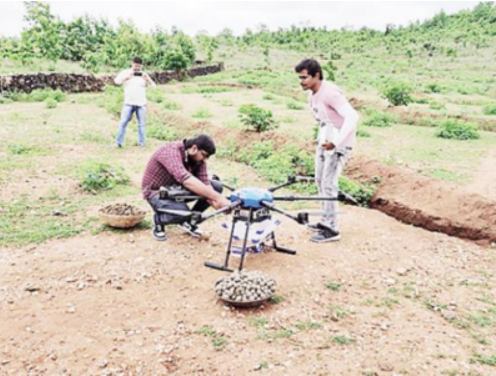UDAIPUR: In an innovative approach to increase forest cover in the state, the forest department on Tuesday used a specialised drone for dropping seed balls in interior hilly areas at Sarveni Ven that falls under Salumber forest range of Udaipur district.
The initiative was a part of the pilot project jointly taken up by the ministry of forest and environment Delhi and Rajasthan government where Udaipur has been chosen for experimenting the seed bombing technique.
Some 10,000 seed balls containing seeds of indigenous varieties such as kher, kuntha, roz and baheda were dropped from a height of 100 metres in a 5-hectare earmarked area which has been protected by a four-metre boundary. A team of experts from Hyderabad, who conducted the trial, will monitor the growth of the seed balls for a year and if the seeds survive to grow into a thick vegetation, the project will be extended to high altitude forests.
“Udaipur has been selected for the pilot project as there are hills more than 1500 metre high where plantation is really difficult. In an effort to replant forests that have suffered massive deforestation, we have experimented with spray seed fields from the sky in a comparatively lower hilly area in the first phase,” deputy conservator of forests Ajay Chittora told TOI.
The technique is also called aerial reforestation and involves a drone dropping thousands of seed bombs. These seed bombs are balls of clay and earth packed with seeds inside. Effective coating of seeds with healthy growth catalysts like soil, cow dung, cow urine and compost increases the success of seed germination.
Once they hit the ground, the seeds sprout and over time grow into a beautiful and lush forest. This method is particularly ecological because a variety of seeds can be packed into a single ball, allowing scientists to identify which species naturally tend to grow in a specific area without human intervention.

